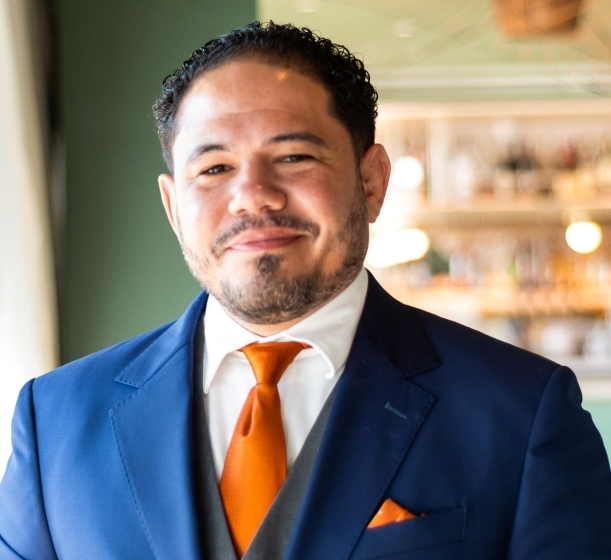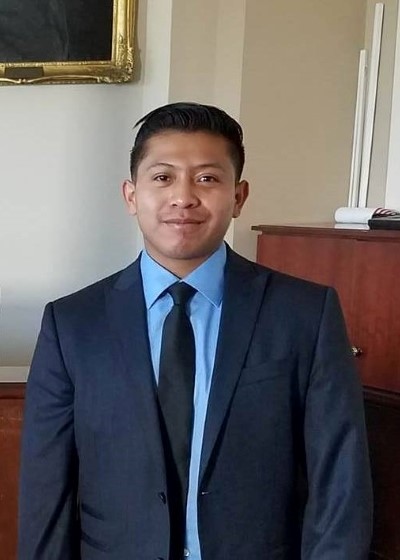
YOUTH AT RISK: THE IMPACT OF LABOR TRAFFICKING BY FORCED CRIMINALITY
On July 10, 2024, SJI hosted an insightful panel discussion on labor trafficking by forced criminality (LTFC), a form of trafficking in which victims are forced to carry out illegal activities, such as the cultivation, transport, and sale of drugs, as well as theft and other gang-related crimes. Specifically, the panel focused on LTFC and its impact on youth who are exploited for their labor in these illicit operations, which often remains invisible within the broader discourse on human trafficking, such as the commercial sexual exploitation of children (CSEC).
During our event, panelist explored the complex intersections of homelessness, gang involvement and LTFC, shedding light on how these vulnerable groups are targeted and exploited. Attendees heard powerful testimonies from individuals with lived experiences, offering a firsthand perspective on the challenges and realities faced by youth who are labor trafficked by forced criminality. The discussion also covered potential solutions and actionable steps that can be taken to address and mitigate the impact of LTFC on youth.
RECOMMENDED READING ON FORCED CRIMINALITY
Labor Trafficking of Youth by Forced Criminality
The white paper published by SJI's Senior Policy Counsel, Anabel Martinez, discusses how the City and County of Los Angeles can improve their response to all forms of child trafficking. Disturbingly, many of the youth within our city and our county are coerced into criminal activities, arrested and placed in the criminal legal system, perpetuating their victimization. As a 1st step, it is paramount that youth apprehended for criminal offenses in Los Angeles County undergo comprehensive screening for various forms of human trafficking, including labor trafficking by forced criminality (LTFC).
The SJI white paper also explores how narrowing intervention strategies in Los Angeles to the Commercial Sexual Exploitation of Children (CSEC) inadvertently perpetuates public and institutional misconceptions that combating CSEC equates to addressing all forms of human trafficking. This limited perspective hinders the development of a more holistic and effective strategy to protect and support all trafficked children. It is not too late for Los Angeles County/City and DCFS to pioneer a holistic approach to protecting its youth from all forms of commercial exploitation, including labor trafficking and labor trafficking by forced criminality. This effort would not only align with Los Angeles's values of justice and compassion but also reinforce its standing as a leader in the fight against human trafficking.
Moderator

Anabel Martinez
Anabel Martinez (she/her) is the Senior Policy Counsel for the Sunita Jain Anti-Trafficking Initiative (“SJI”) where she provides support in the development of local, state, and national anti-trafficking policy strategies, which promote survivor informed and evidence-based public health and community-based alternatives to the dominant approach of using incarceration as a solution to human trafficking which often re-traumatizes survivors, especially survivors with their own criminality. Before joining SJI, Anabel was an attorney with the Loyola Immigrant Justice Clinic (“LIJC”) where she provided immigration legal services to low-income immigrant community members of the Los Angeles County area. Previously, Anabel worked as a Victims’ Rights Staff Attorney for the Legal Advocacy Project for Survivors at the Los Angeles LGBT Center where she provided trauma informed, client-centered, and affirming holistic legal services to LGBTQI+ survivors of domestic violence, sexual assault, hate violence, stalking, and other crimes. Anabel earned her Juris Doctorate from Loyola Law School, Los Angeles where she graduated with a concentration in Public Interest Law.
Panelist

Aja Houle
Aja Houle is a human trafficking survivor, mother of four, and advocate. She graduated from Santa Rosa Junior College and is currently a Public Affairs candidate at the Goldman School of Public Policy at University of California, Berkeley. On her journey, she came to realize the importance of spreading awareness about combating trafficking. She also came to acknowledge how valuable survivor empowerment is. Because trafficking policies do not currently reflect fair & just policy that survivors deserve, Aja has made Public Affairs an area of focus in her life. She is dedicating her life to preventative & reparative efforts for all forms of trafficking.

James Dold
James Dold is the Founder & CEO of Human Rights for Kids (HRFK). James oversees all of HRFK’s programming and operations work. Under his leadership HRFK has solidified itself as the national expert on human rights issues impacting children in the United States. He is the principal author behind The Fight for Our Soul: A Legislative Blueprint for Changing the Way the Criminal Justice System Treats Children, as well as HRFK’s Annual National State Ratings Report which assesses how well or how poorly states are protecting the human rights of children in the criminal legal system. These reports have inspired policymakers and advocates from across the country to pass laws to bring their states into compliance with human rights standards.
Prior to launching HRFK, James served as Advocacy Director and Chief Strategy Officer for the Campaign for the Fair Sentencing of Youth where he developed and implemented the advocacy strategy that led to the quadrupling of states that ban life without parole sentences for children in the U.S. Hundreds of people who were told as children that they would die in prison have been released due to his efforts. James also served as Senior Policy Counsel at Polaris Project where he led successful state legislative campaigns resulting in the passage of 40 new anti-human trafficking laws across the country. A survivor of child labor trafficking and sexual abuse himself, James was also the architect behind Nevada’s AB 146 in 2013 which criminalized involuntary servitude of a minor which was based on his experiences as a survivor.
James received dual baccalaureates in Criminal Justice and Psychology from the University of Nevada Las Vegas and graduated Cum Laude from the University of Maryland School of Law. He is licensed to practice law in the state of Maryland and is a member of the bar of the Supreme Court of the United States. James was a 2016 Halle Scholar with the Aspen Institute’s Justice & Society Program. He was also a finalist for the 2020 Grinnell Prize and 2021 Echoing Green Fellowship. In 2021 James was selected as a winner of the Paul H. Chapman Award by the Foundation for the Improvement of Justice and the Social Innovation Pitch Prize by Echoing Green and Barclays.

Jimmy Lopez
Jimmy Lopez is a survivor of child labor trafficking. He fled Honduras to avoid being recruited by gangs at 14. This took him on a journey that transcended across neighboring countries in search of better opportunities. He lived alone in Mexico for two years where he eventually met a man who offered him a way into the US. After crossing the border, he was forced to pay off his debt by working in a furniture factory through the use of violence to keep him from leaving. Jimmy was then trafficked again in a restaurant by another man who had offered him a better pay to drive a truck. This experience resulted in his arrest for possession of narcotics after being stopped by police and failing to provide any form of identification. He was held in a detention facility for two years where he believed he was treated like a criminal. It was during this ordeal that his public defender recognized his experience in trafficking that also forced him to participate in criminal activities. It was his public defender that contacted the Coalition to Abolish Slavery & Trafficking (CAST) to provide him with support to prevent his continued incarceration and deportation. Jimmy is now a survivor advocate for other children who have had similar experiences. He has spoken at the United Nations, the White House, and US Congress. He has trained judges and service providers on the dynamics of child labor trafficking. He has also travelled internationally and is recognized as a young leader in the Anti-Trafficking movement.

Kaitlyn Zedalis
Kaitlyn Zedalis is the Associate Director of Research, Learning, & Advocacy for the Covenant House Action and Research Tank (CHART) at Covenant House New Jersey. Kaitlyn oversees agency initiatives related to program evaluation, strategic planning, research, and advocacy. She has co-authored published research on labor trafficking by forced criminality, and conducted a regional needs assessment on services for students experiencing homelessness. Kaitlyn is a consultant for the National Human Trafficking Training & Technical Assistance Center, and assists organizations across North America on the topics of human trafficking screening and assessment, trauma informed care, and best practices for serving survivors of human trafficking. Kaitlyn has a Bachelor of Arts degree in Psychology and a Master’s degree in Social Work from Stockton University, where she currently serves as an adjunct professor. She is a Licensed Social Worker and Licensed Clinical Alcohol and Drug Counselor in the State of NJ.
